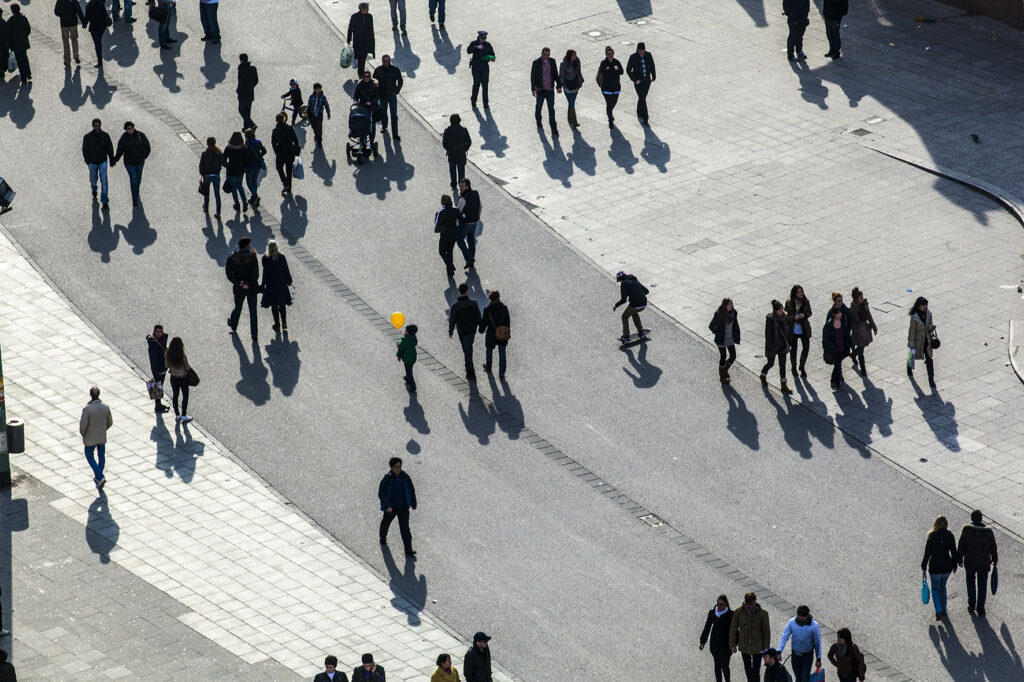Does religious belief affect views of the EU?
Does religious belief affect views of the EU?
Catholics have long supported an international and united Church under one pope. Does that make them more likely to support the efforts of the EU? Protestantism was born out of skepticism of the Catholic Church– do these doubts spill into views of the EU? Or, is the influence of religion negligible?
In European history, there is a long-standing stereotype that Catholics long for a unified Christendom under the pope. By contrast, Protestants, born out of a conflict with Catholicism, are skeptical of large-scale unification, preferring to form bonds only when strategically beneficial.[1] [2] There is certainly some truth to this belief, as the very names of the two sects make clear: Catholic, from the Greek katholikos or “universal,” and Protestant from Luther’s protestatio, or declaration against certain Catholic practices. The debate now lies in how far this idea can be stretched, particularly when discussing politics and culture today, in a Europe that many consider “post-Christian.”[3]
Culture as religion’s successor
In 2015, Brent F. Nelsen and James L. Guth applied the traditional idea, albeit with more nuance, in their analysis of how different countries viewed the European Union.[4] The two argue that despite decreasing religiosity, the modern culture of many European countries reflects old religious dominance. Countries with a history of heavy Catholic presence, like Spain, France, and Italy tend to be more supportive of a unified Europe, whereas Protestant dominant countries, like the UK, the Netherlands, and Scandinavian countries are more skeptical.[5] That is not to say Protestants are inherently opposed to the EU. Instead, they approach it with more caution, often preferring an organisation that is less centralised.[6] [7]
On a broad scale, there does seem to be some evidence of more widespread scepticism of the EU amongst Protestants.[8] One could argue that the United Kingdom’s decision to leave the EU reflects this overall trend. The United Kingdom has its own church, the Anglican Church, and heavily persecuted Catholics for centuries, making its culture arguably Protestant. And, in a 2019 study by Ekaterina Kolpinskaya and Stuart Fox, members of the Anglican Church were found to have, on average, lower opinions of the EU, whereas Catholics, on the whole, had a higher approval.[9]
The dangers of causation versus correlation
That being said, it is far too easy to mistake correlation with causation in these matters. Meaning: even if there is a trend between Catholicism and EU sentiment, that does not mean being Catholic causes the changed sentiment; there could be other factors. Kolpinskaya and Fox helpfully note that when they factored for country of birth, the positive correlation between being Catholic and favoring the EU disappeared, becoming largely insignificant, even slightly negative. This suggests that being born in a different European country played more of a role in a Catholic’s view of the EU than being a Catholic.[10]
Furthermore, while the research did find that being Anglican had a negative correlation with approval of the EU, this did not hold true for all Protestants. For instance, members of more widely established Protestant denominations, like the Anglican Church, tended to have a lower view of the EU, whereas Protestant groups historically marginalised in the UK had higher opinions of the EU. This suggests that a religion’s historical relationship with a country’s government may be the better indicator of EU approval instead of the religious beliefs themselves.[11]
Catholic disillusionment?
Further muddying the waters are recent conflicts between Catholic groups and the European Union. In a 2019 analysis of France’s anti-Macron and anti-EU gilets jaunes protestors, the journalist Vincent Boland points to a fact most coverage ignored: the protestors were predominantly Catholic.[12] Boland further argues that there is a growing division between believing Catholics and the European Union, as the latter is seen as a secular institution, run by disconnected elites.[13] [14] The divide extends beyond just France, too. Poland and Italy, both of which are majority Catholic – Poland almost entirely so[15] – have increasing amounts of Euroscepticism.[16] [17]
Poland, in particular, deserves attention, particularly in light of the recent protests over the Constitutional Court’s decision to outlaw abortions for foetal deformities, which accounted for 98% of abortions in Poland.[18] While many Poles are outraged and dismayed by the decision, the right-leaning Law and Justice Party as well as the Catholic Church in Poland have welcomed further curbs on abortion. The European Union has rebuked Poland and its ruling Law and Justice Party several times in the previous years, which has led some of Poland’s devout Catholics to view the EU as an irreligious opponent.[19] Correspondingly left-leaning Poles with less or decreasing connection to the Catholic Church, see the EU as a powerful ally.[20] [21] [22]
A jumble of factors
Interestingly, combining Boland with Nelsen and Guth would lead to a situation in which individuals of a Catholic heritage but who no longer regularly practice would view the EU most favorably. Overall, though, while religion can sometimes correlate with someone’s view, convincing evidence that it causes the view is still lacking. More likely, it is a combination of factors: country specific, socioeconomic, historic, and, yes, cultural.
Learn more about religion and society on the EARS Dashboard
[1] Religion and the Struggle for European Union: Confessional Culture and the Limits of Integration
[2] Praying on Brexit? Unpicking the Effect of Religion on Support for European Union Integration and Membership*
[3] ‘Christianity as default is gone’: the rise of a non-Christian Europe
[4] Religion and the Struggle for European Union: Confessional Culture and the Limits of Integration
[5] Religion and the Struggle for European Union: Confessional Culture and the Limits of Integration
[6] Religion and the Struggle for European Union: Confessional Culture and the Limits of Integration
[7] Praying on Brexit? Unpicking the Effect of Religion on Support for European Union Integration and Membership*
[8] Praying on Brexit? Unpicking the Effect of Religion on Support for European Union Integration and Membership*
[9] Praying on Brexit? Unpicking the Effect of Religion on Support for European Union Integration and Membership*
[10] Praying on Brexit? Unpicking the Effect of Religion on Support for European Union Integration and Membership*
[11] Praying on Brexit? Unpicking the Effect of Religion on Support for European Union Integration and Membership*
[12] The yellow vest riots are a Catholic rebellion
[13] The yellow vest riots are a Catholic rebellion
[14] Poland’s Catholics shun membership of ‘Godless’ EU
[15] Polish women strike over abortion law
[16] How likely are the ‘big four’ European economies to vote to leave the EU if Brexit works out?
[17] Support for Eurosceptic parties doubles in two decades across EU
[18] Miners, farmers and taxi drivers unite behind protests against Poland’s abortion laws
[19] The yellow vest riots are a Catholic rebellion
[20] Poland on brink of a new, pro-EU politics
[21] Power of Polish Catholic church challenged by abortion protests






